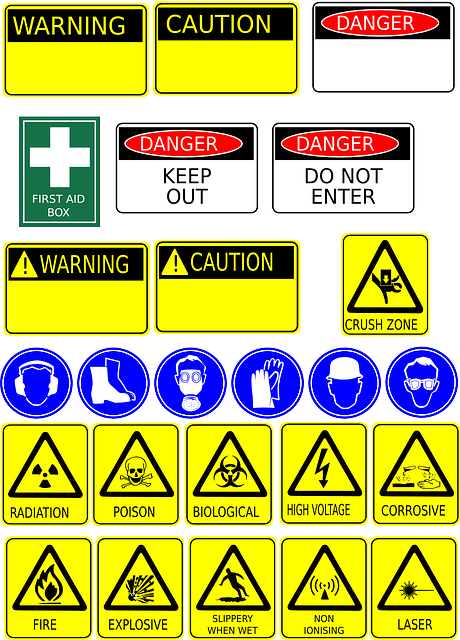Robust background checks for retail employees are crucial for maintaining business integrity and workplace safety. These checks include verifying qualifications, criminal history, and past employment to prevent hiring unqualified or dishonest individuals. By implementing thorough screening, retailers protect against fraud, theft, and security breaches, fostering trust and accountability. Adhering to legal regulations like FCRA, businesses employ comprehensive checks tailored to the industry, including integrity assessments and drug screenings. This practice enhances customer satisfaction, repeat business, and brand reputation. Implement multi-stage screening processes, stay updated with industry standards, and leverage digital tools for efficient onboarding while promoting transparency and accountability among employees.
In today’s competitive retail landscape, ensuring employee integrity is paramount. Verifying the credentials and qualifications of retail workers isn’t just a best practice—it’s essential for maintaining customer satisfaction and minimizing operational risks. This article explores the critical importance of retail employee screening, delves into legal considerations for background checks, and provides effective methods to validate skills and experience. Additionally, we discuss the impact on employee integrity and offer best practices for retailers to manage compliance and mitigate risks.
- Understanding the Importance of Retail Employee Screening
- Legal Considerations for Background Checks in Retail
- Effective Methods to Verify Credentials and Qualifications
- The Impact on Employee Integrity and Customer Satisfaction
- Best Practices for Retail Employer Compliance and Risk Management
Understanding the Importance of Retail Employee Screening

In today’s digital era, where every detail can be easily verified online, it’s crucial to begin any employment relationship with a robust screening process for retail workers. Background checks for retail employees are not just about confirming their identity; they ensure the integrity of your business and workplace safety. Effective retail employee screening involves verifying qualifications, criminal history, and past employment records, among other factors.
This meticulous approach helps in mitigating risks associated with hiring an unqualified or dishonest individual. Retail environments often deal with significant financial transactions, sensitive customer data, and valuable inventory. By conducting thorough background checks, retailers can protect themselves from potential fraud, theft, and other security breaches. Moreover, it fosters a culture of trust and accountability among employees, ensuring they meet the highest standards of professionalism and integrity.
Legal Considerations for Background Checks in Retail

In the realm of retail, ensuring the integrity and reliability of employees is paramount to maintaining a safe and secure work environment. Background checks for retail employee screening play a crucial role in verifying credentials, qualifications, and past conduct. From a legal perspective, employers must adhere to specific regulations when conducting these checks, particularly regarding privacy and data protection.
In many jurisdictions, there are strict laws governing the use of background information, such as the Fair Credit Reporting Act (FCRA) in the United States, which mandates that employers obtain written consent from applicants before ordering background checks. This legal framework is designed to protect individuals from unfair treatment or discrimination based on their past and to safeguard sensitive personal data. Employers must carefully navigate these legal considerations while conducting thorough screening processes to maintain a competitive edge in the retail industry by attracting and retaining qualified staff.
Effective Methods to Verify Credentials and Qualifications

To effectively verify credentials and qualifications for retail workers, businesses should implement robust background checks tailored to the industry. These checks should encompass verifying employment history, educational attainment, and any relevant certifications or licenses. Reputable third-party screening services can assist in this process by utilizing advanced data analytics and comprehensive databases to cross-reference information accurately.
Additionally, integrity-focused assessments and drug screenings are vital components of retail employee screening. These measures help identify individuals with a strong moral character and those who adhere to ethical standards, ensuring customer trust and reducing the risk of theft or dishonest behavior. Integrating these effective methods into the hiring process creates a reliable talent pipeline for retail operations.
The Impact on Employee Integrity and Customer Satisfaction

Background checks for retail employee integrity are a critical aspect of ensuring both employee ethics and customer satisfaction. By verifying credentials and qualifications, retailers can mitigate risks associated with dishonest or unqualified staff, fostering an environment of trust among customers. When employees know that their employer conducts thorough screening processes, they are more likely to feel accountable for their actions, leading to higher levels of integrity on the job.
Moreover, satisfied customers often rely on the expertise and professionalism of retail workers when making purchasing decisions. Implementing robust background checks in retail employee screening can help prevent scenarios where employees with questionable backgrounds or inadequate skills mislead customers. This, in turn, enhances customer trust, encourages repeat business, and contributes to a positive brand image, ultimately driving sales and profitability for the retailer.
Best Practices for Retail Employer Compliance and Risk Management

To ensure retail employer compliance and risk management, implementing robust best practices for verifying retail workers’ credentials and qualifications is paramount. Start by conducting thorough background checks that include verifying employment history, criminal records, and educational qualifications. Retail employers should also implement a multi-stage screening process that involves reference checks with previous employers and skill assessments tailored to the specific job role.
Regular updates to screening procedures are essential to keep up with evolving industry standards and legal requirements. Digital tools for document verification and electronic signature capture can streamline the onboarding process, enhancing accuracy and efficiency while reducing paperwork. Additionally, fostering a culture of transparency and accountability among employees encourages ethical behavior and strengthens internal controls, thereby minimizing compliance risks.






